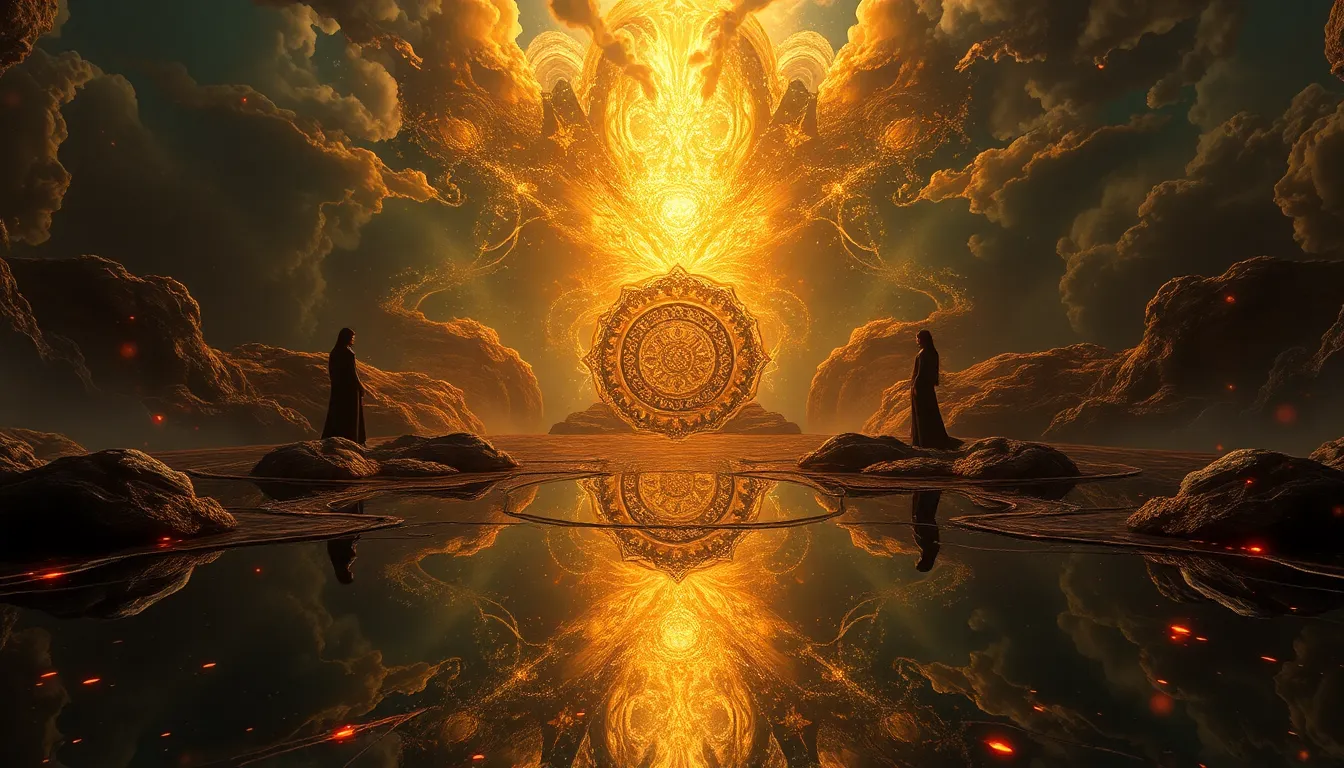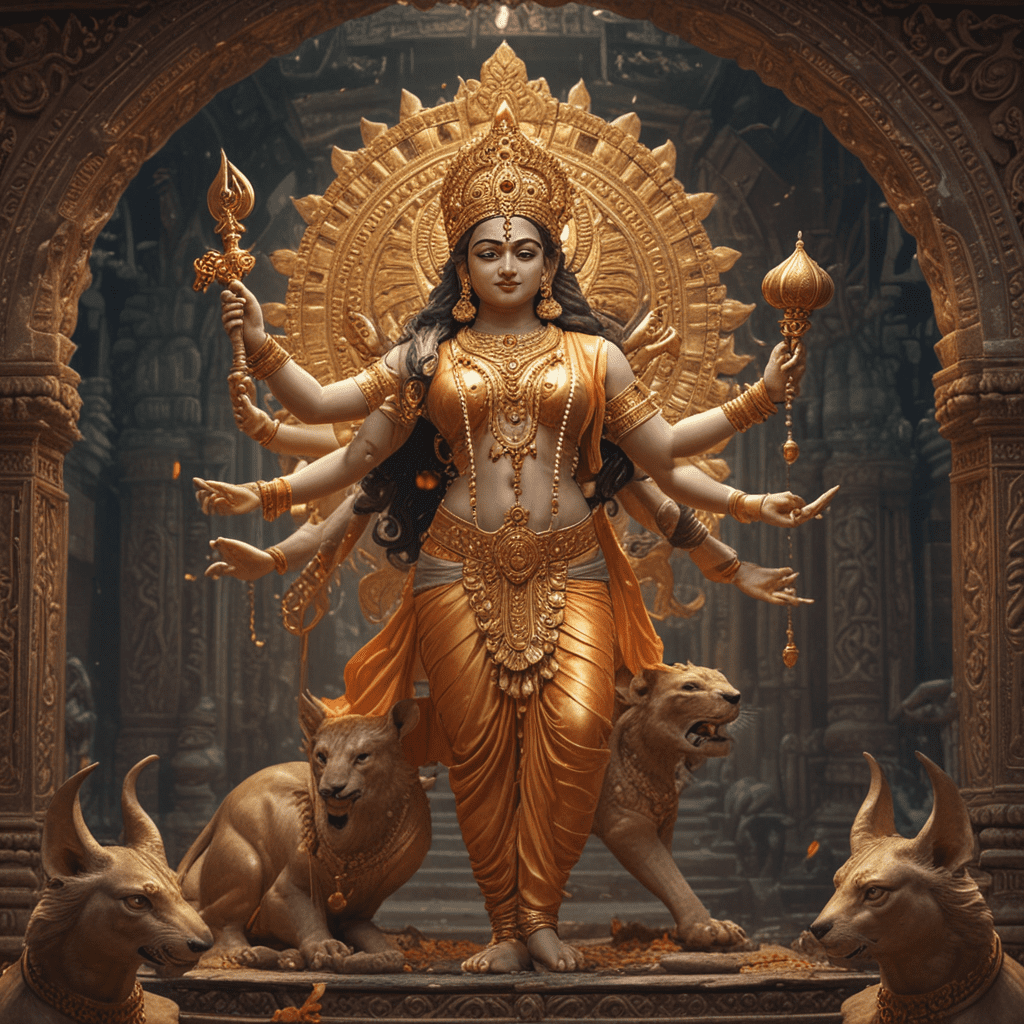The Mirror of Fate: Reflection or Reality?
I. Introduction
The “Mirror of Fate” is a compelling concept that intertwines the notions of destiny, self-reflection, and personal agency. It invites individuals to ponder whether their lives are shaped by a predetermined path or if they are the architects of their own fates. This article will explore the various interpretations of the Mirror of Fate, examining whether it serves as a metaphor for introspection or a tangible reality that influences our lives.
Readers will gain insights into historical perspectives on fate, psychological implications of self-reflection, and practical applications for personal growth. By the end of this article, we will have a clearer understanding of how the Mirror of Fate reflects our lives and decisions.
II. Historical Context of Fate in Mythology and Philosophy
Fate has been a significant theme throughout history, appearing in various cultures and philosophies.
A. Fate in ancient cultures: Greek and Roman interpretations
In ancient Greek mythology, the Moirai, or Fates, were three sisters who controlled human destiny. Clotho spun the thread of life, Lachesis measured it, and Atropos cut it, signifying a predetermined life span for every individual. Similarly, Roman interpretations of fate often reflected the same themes, with concepts like Fortuna representing luck and fate’s unpredictability.
B. The role of fate in Eastern philosophies: Buddhism and Hinduism
In Eastern philosophies, fate is often intertwined with concepts of karma and dharma. In Hinduism, the idea of karma suggests that one’s actions in past lives influence their current circumstances, while Buddhism focuses on the impermanence of life and the potential for change through awareness and enlightenment.
C. The evolution of the concept through the Middle Ages to the Modern era
During the Middle Ages, fate became associated with divine providence, where religious interpretations dominated. However, the Enlightenment brought a shift towards humanism and rational thought, challenging traditional views of fate and introducing the idea of free will as a counterbalance to predestination.
III. The Mirror as a Metaphor
The metaphor of the mirror serves as a powerful tool for self-examination and personal development.
A. Psychological implications: Self-reflection and personal growth
Self-reflection allows individuals to confront their beliefs, behaviors, and motivations. By viewing themselves in the “Mirror of Fate,” they can identify patterns and make conscious choices to alter their paths.
B. The mirror in literature and art: Symbolism and thematic exploration
In literature and art, mirrors often symbolize truth, self-awareness, and the duality of human nature. Works like Lewis Carroll’s “Through the Looking-Glass” explore themes of identity and perception, challenging characters to confront their realities.
C. Cultural interpretations of mirrors in different societies
- In many cultures, mirrors are seen as portals to the soul.
- Some societies believe that breaking a mirror brings bad luck, reflecting a fear of confronting one’s true self.
- In Eastern traditions, mirrors are often used in ritual practices to ward off negative energies.
IV. The Science of Reflection: Cognitive and Psychological Perspectives
The intersection of psychology and cognitive science sheds light on how reflection shapes our realities.
A. How self-perception influences reality
Self-perception plays a crucial role in how individuals interpret their experiences and decisions. A positive self-image can lead to a more optimistic outlook on life, whereas negative self-perception may result in a feeling of being trapped by fate.
B. The role of cognitive biases in shaping our fate
Cognitive biases, such as confirmation bias and the availability heuristic, can distort how we perceive our choices and the outcomes of our actions. These biases can create a self-fulfilling prophecy, reinforcing the belief that our fate is predetermined.
C. Psychological theories related to fate and decision-making
Theories like locus of control highlight how individuals perceive their ability to influence their fate. Those with an internal locus believe they can control their outcomes, while those with an external locus may feel at the mercy of fate.
V. The Dichotomy of Free Will vs. Predestination
The ongoing debate between free will and predestination raises profound questions about human agency.
A. Exploring philosophical arguments for and against free will
Philosophers such as Sartre advocate for existentialism, emphasizing that humans are free agents capable of shaping their destinies. In contrast, determinists argue that every action is the result of preceding events, leaving little room for true free will.
B. The impact of belief in fate on human behavior
Belief in fate can significantly influence behavior. Individuals who see themselves as fated may be less likely to take risks or strive for change, while those who believe in their ability to alter their paths may pursue opportunities more vigorously.
C. Case studies: Individuals who felt their lives were predetermined
Several case studies illustrate how individuals grapple with a sense of predetermined fate:
- A person raised in a family of doctors may feel destined to follow that path, impacting their education and career choices.
- Individuals who experience significant life events may interpret these as signs of a destined path, shaping their future decisions.
VI. The Mirror of Fate in Modern Popular Culture
Contemporary narratives often explore the themes of fate, reflecting societal beliefs and anxieties.
A. Analysis of films, books, and art that explore themes of fate
Many films, such as “The Matrix” or “Final Destination,” delve into the nature of fate and free will, prompting audiences to question their realities. Literature like “The Alchemist” emphasizes the pursuit of one’s personal legend, reinforcing the belief in self-determination.
B. The influence of social media and technology on our perception of fate
Social media platforms can create an illusion of control over one’s fate, as users curate their online personas. However, this can also lead to feelings of inadequacy and a sense of being trapped in a performative cycle.
C. How contemporary narratives reshape the traditional view of fate
Modern narratives often challenge traditional views of fate by emphasizing the power of choice and the impact of individual decisions on outcomes, promoting a more dynamic understanding of destiny.
VII. The Role of Intuition and Gut Feelings
Intuition plays a significant role in how individuals navigate their paths.
A. Understanding intuition as a compass for navigating fate
Intuition can serve as a guiding force, helping individuals make decisions that align with their values and aspirations.
B. The science behind gut feelings: Psychology and neuroscience
Research in neuroscience suggests that gut feelings are informed by past experiences and emotional responses, providing valuable insights into decision-making.
C. Case studies of intuition leading to significant life changes
Many successful individuals attribute their achievements to trusting their intuition, showcasing how inner guidance can lead to transformative choices.
VIII. Spiritual and Mystical Perspectives
Spirituality often provides a framework for understanding fate beyond the material world.
A. The role of spirituality in interpreting fate
Many spiritual traditions emphasize the interconnectedness of all beings and the belief that life unfolds according to a divine plan.
B. Practices such as meditation and mindfulness as tools for reflection
Mindfulness and meditation can enhance self-awareness, allowing individuals to engage more deeply with their sense of fate and personal agency.
C. The significance of synchronicities and signs in understanding fate
Many people report experiencing synchronicities—meaningful coincidences that seem to guide their lives—further emphasizing the belief in a greater design.
IX. Practical Applications: How to Use the Mirror of Fate in Daily Life
Utilizing the Mirror of Fate in everyday life can foster growth and understanding.
A. Techniques for self-reflection and personal growth
- Journaling: Writing about one’s thoughts and feelings can reveal patterns and insights.
- Mindfulness meditation: Practicing mindfulness can enhance self-awareness and clarity.
- Seeking feedback: Engaging with others can provide fresh perspectives on one’s path.
B. Setting intentions and goals: Aligning with one’s perceived fate
By setting clear intentions



